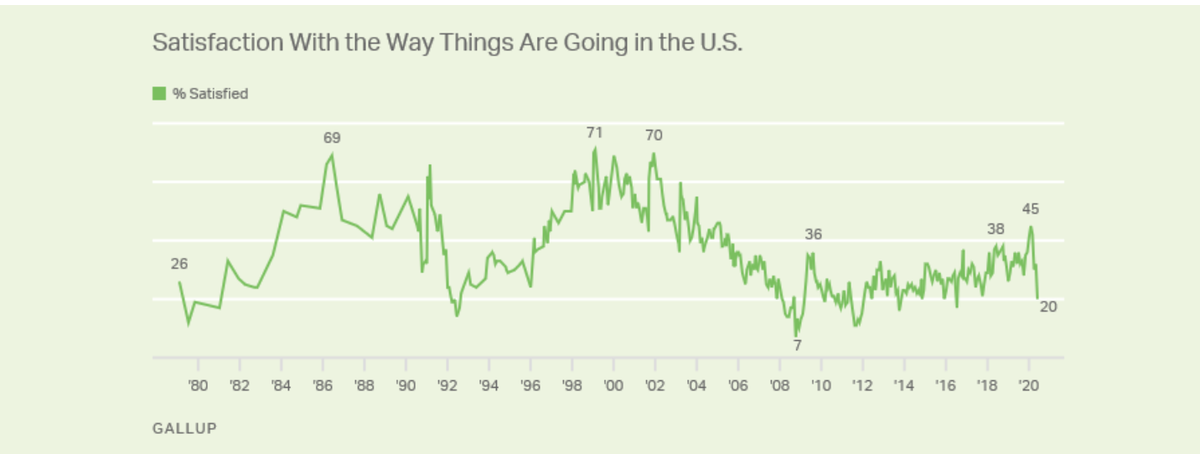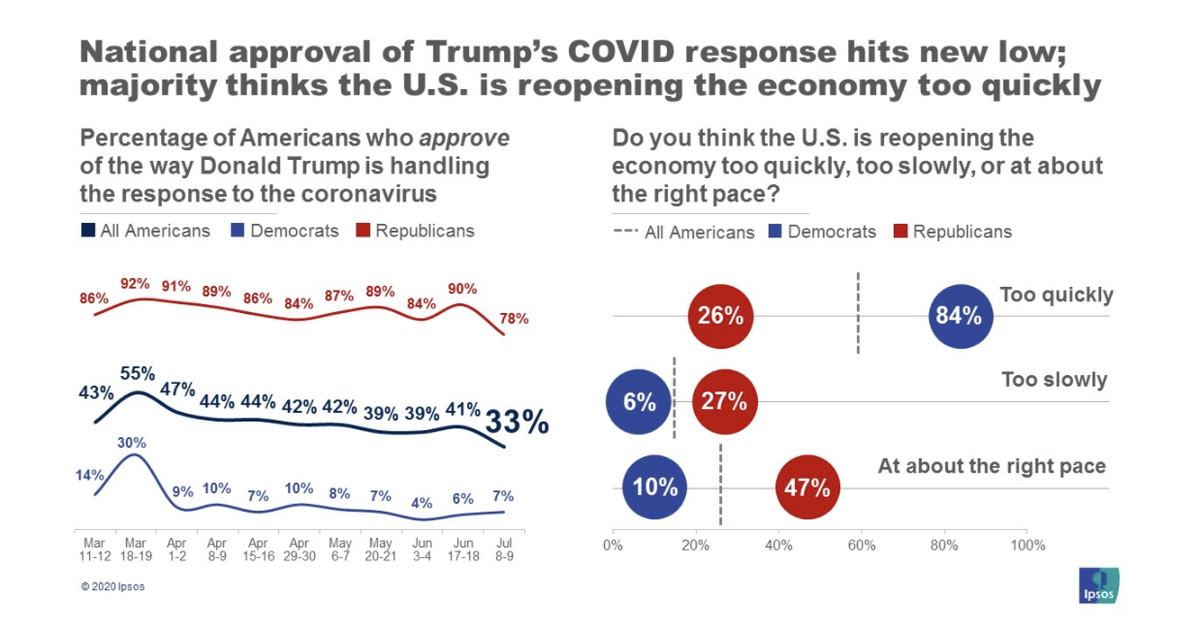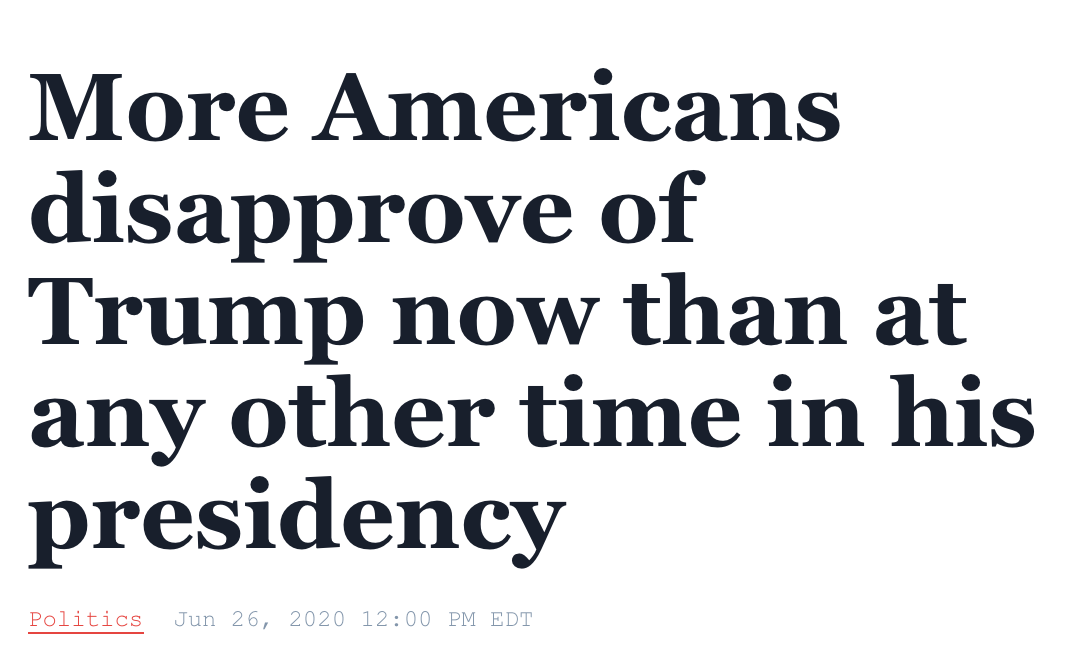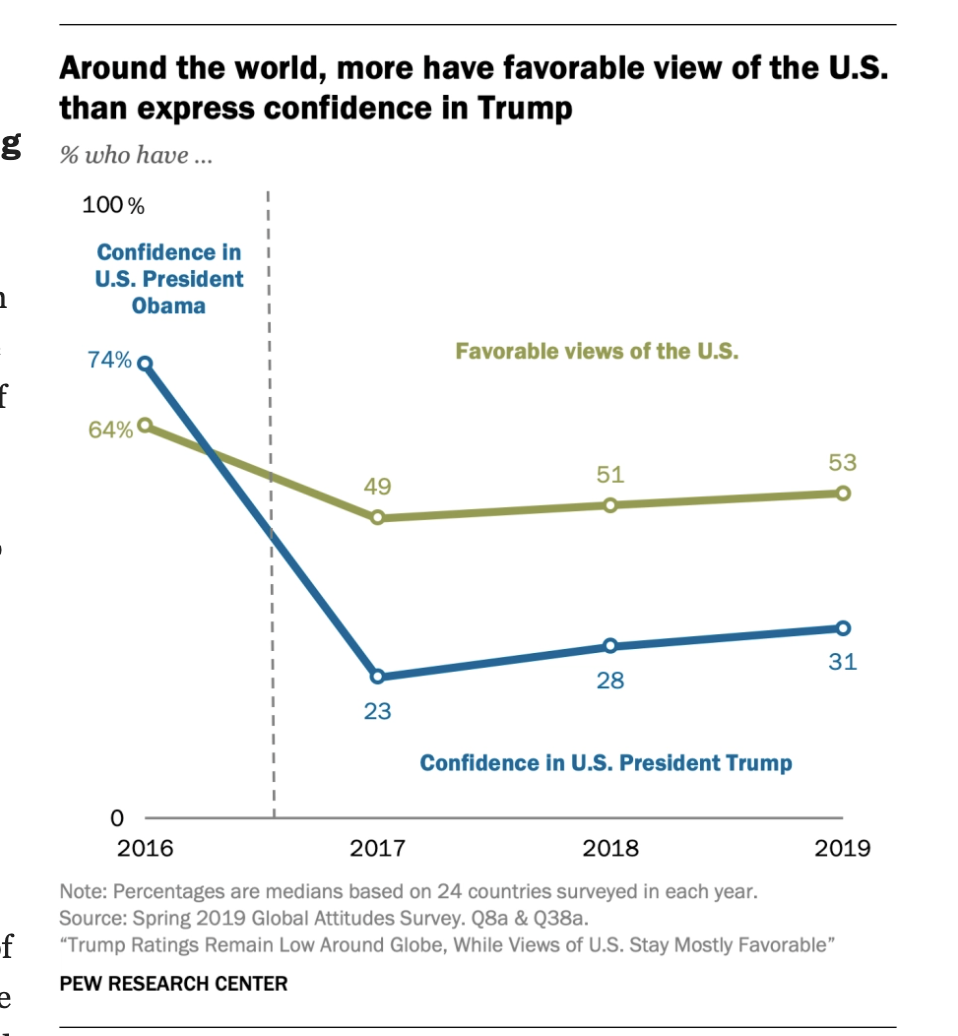Ivanka Trump is right. 80% of Americans are ready to #findsomethingnew 

When it comes to the handling of COVID, 67% of Americans are ready to #findsomethingnew ipsos.com/en-us/views-tr… 

As for race relations, there 58% of Americans are ready to #findsomethingnew cbsnews.com/news/2020-dail… 

And with special relevance to this latest Ivanka Trump brainwave ... Americans look at the present First Family and almost unanimously agree: #findsomethingnew nytimes.com/2019/04/01/us/… 

• • •
Missing some Tweet in this thread? You can try to
force a refresh










